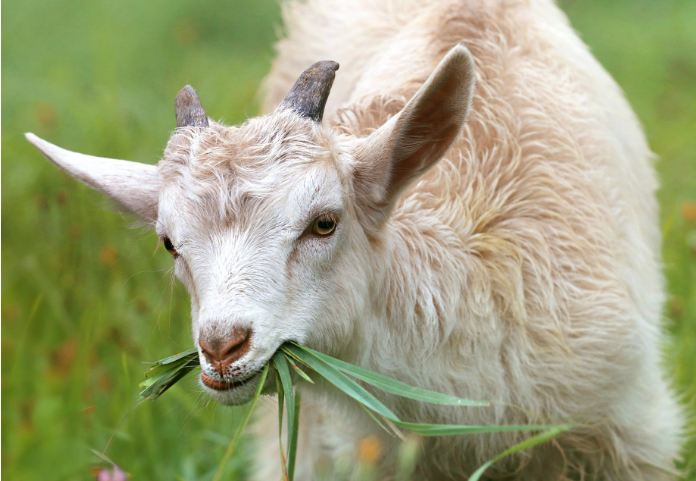If you would, please open your mind for a bit and allow me to butt in to clear up some of the tales, myths, and rumors about goats, and goat milk.
Let’s start with the fact that goats are easier to handle than cows because they require less work, feed, and housing space.
As a matter of fact, you can transport a doe for breeding in the trunk of your car. Try doing that with a two ton heifer.
Goats are friendly, intelligent, full of personality, and fun. If you get to know a goat personally… every rumor you’ve heard about goats would be blown away into insignificance.
You’d probably want to keep a few goats yourself, if you don’t already do so.
There is no in between with goats. You either love them or you hate them. However, the hate is hard to understand, unless it stems from the mass of tales, myths, and rumors that abound concerning goats.
Most folks have never even seen a live goat, yet they think they know all about them… from cartoons and comic strips.
One of the tales folks believe about goats is that they smell terrible. This tale probably originated from the aroma of the buck during mating season.
However, this should be of little concern since most folks do not keep their own buck. The does do not smell.
As a matter of fact, if given the opportunity to keep themselves clean… does are less objectionable than most dogs.
Another tale that needs to be clipped is “goats will eat anything… including tin cans.” One of the problems here is that goats are unlike most other animals folks are used to.
Not only are they not carnivorous like dogs and cats, they aren’t really grazers like cattle and sheep either. They are more closely related to deer.
This means that not only do goats prefer trees and bushes to grass, but they also take a bite here and a nibble there.
And yes, that will include your shirttail or anything else that looks interesting. But as far as tin cans go, they may go as far as eating the labels off them… but after all, paper is made from trees, and goats do like trees.
Goat Milk
Now let’s talk about goat milk. So many folks have a false impression that goat milk tastes strong, or goaty. Well it is true that some goats have off-flavored milk… just like some cows do.
Goat milk is very similar to cow milk, and there really isn’t much of a difference to be noticed. You can lay odds that most people can’t tell the difference… unless they’re told.
However, goat milk is more easily digested than cow milk. This is very important in cases where infants, especially, are allergic to cow milk.
But for all practical purposes the two milks are the same. Goat milk is a food, not a medicine.
Now, on the other hand… goat milk is no richer than cow milk either. Just as there is a wide difference in butterfat content among individual cows, between breeds, and at different seasons of the year… it’s the same for goats.
Now here’s a fact, not a tale… more people in the world drink goat milk regularly than cow milk.
Only in the United States with it’s mass production and mechanized labor… is the less efficient cow favored.
Goat dairying as a commercial enterprise has never taken off in the United States mainly because there has not been a great demand for goats or goat milk. However, that seems to be changing as our population changes and grows.
No one knows how many goats there are in the United States because most of the goats are on homesteads rather than large farms, and homesteaders aren’t invited to participate in the agricultural census.
However, the interest in goats and goat milk continues to slowly climb because more folks are becoming intent on doing more with less.
In summary… the dairy goat is coming into the respect and appreciation that it so truly deserves.

